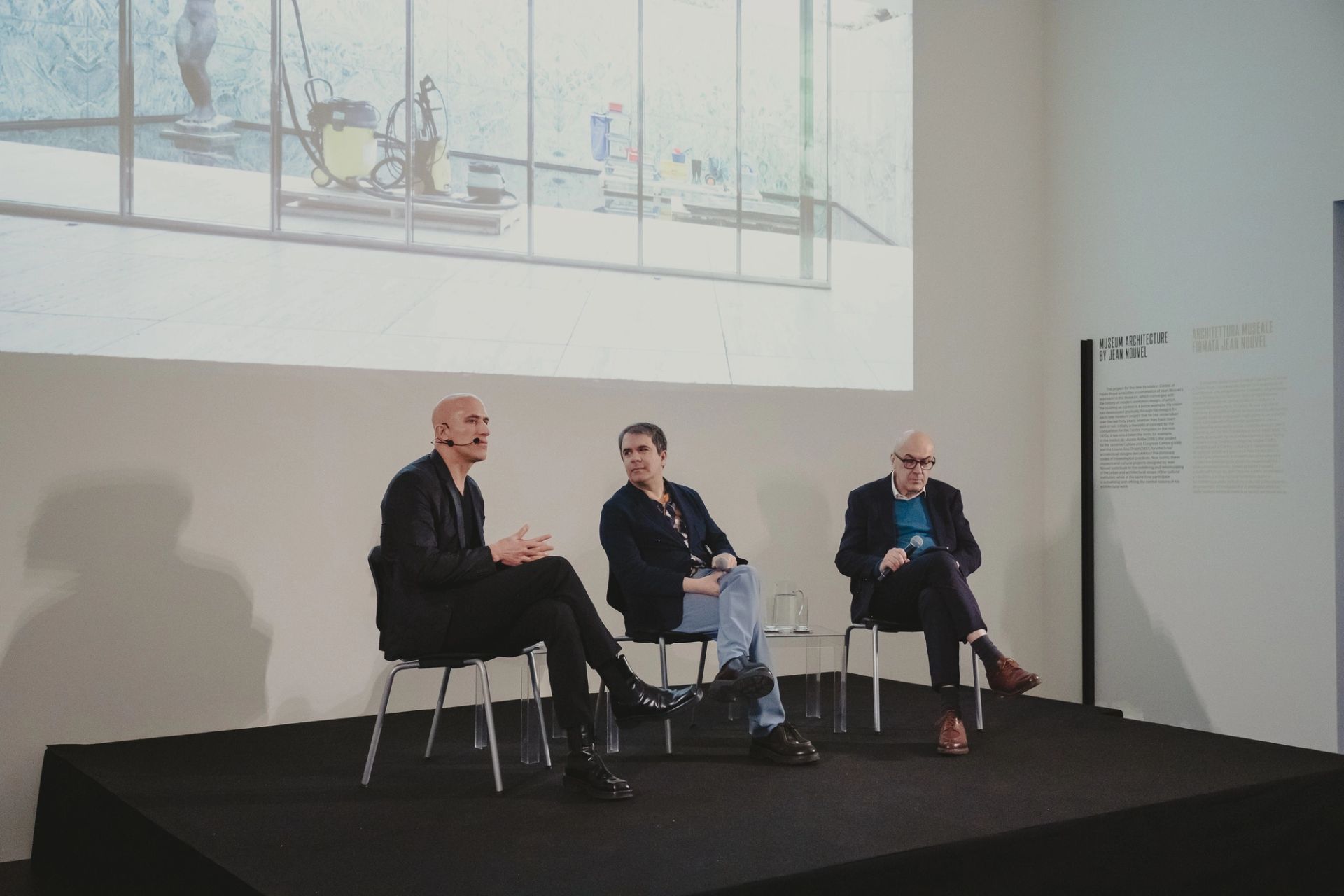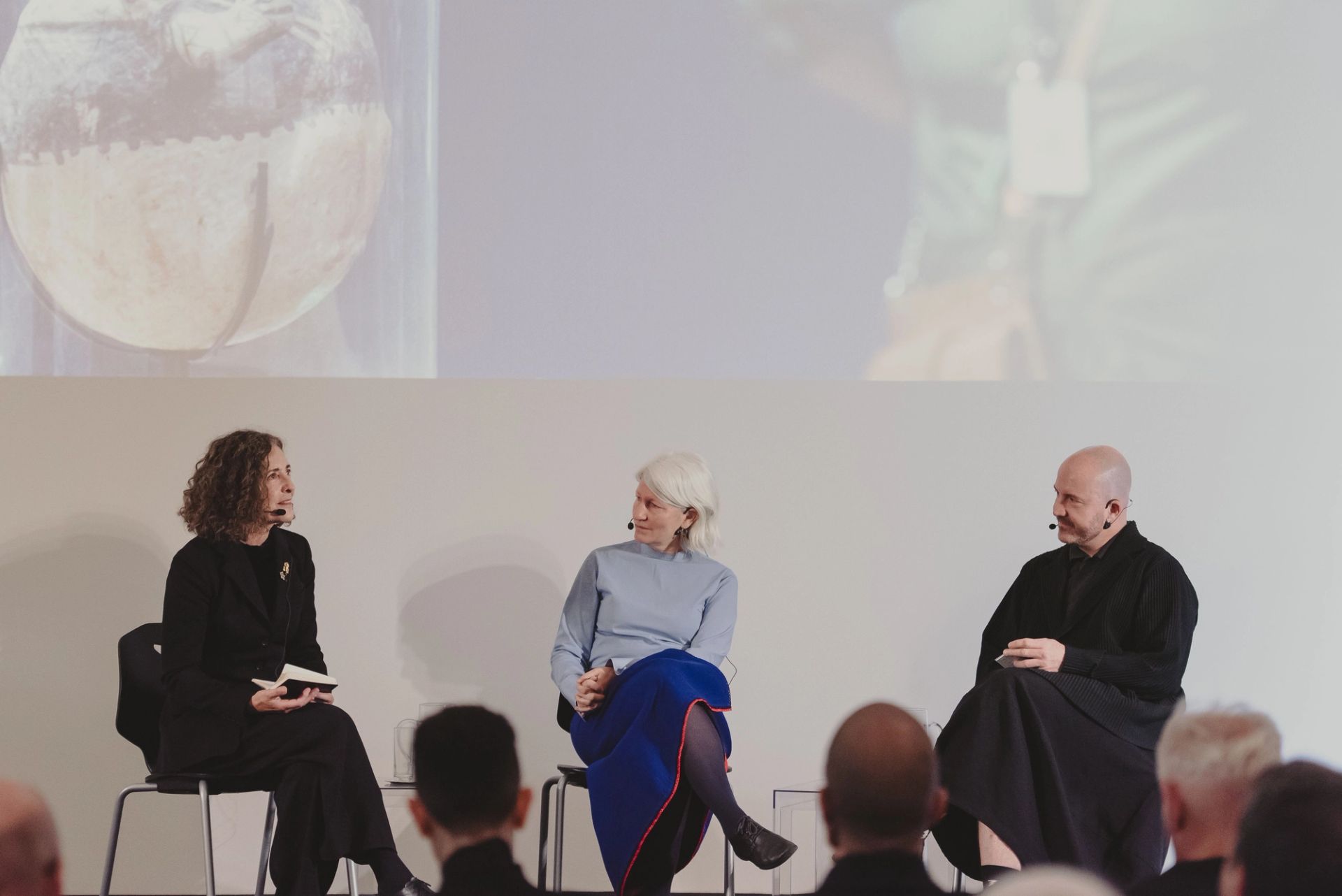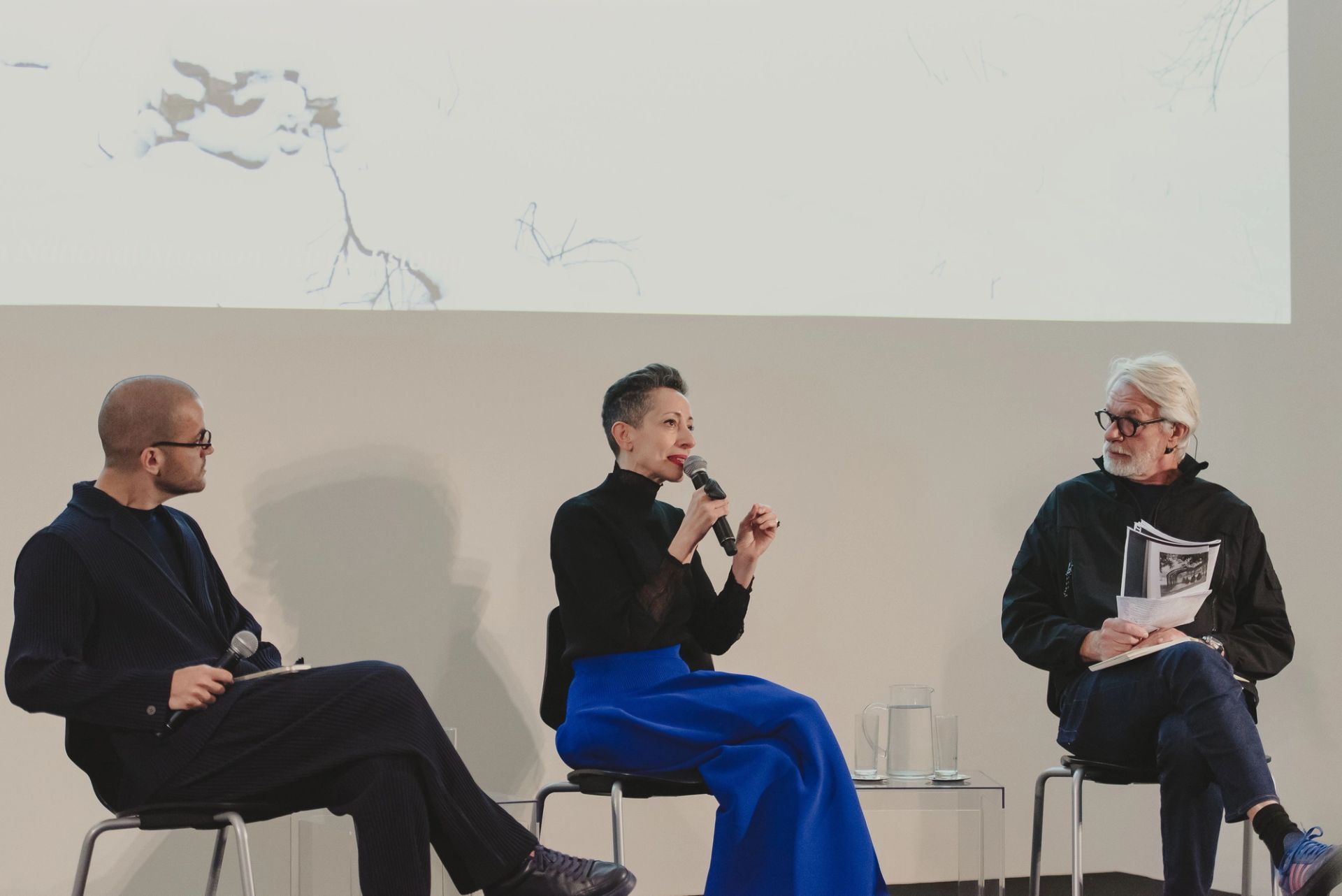The media collaboration between Koozarch and The Fondation Cartier pour l'art contemporain is focused on the production of an audio series of five episodes based on the Fondation Cartier Conversations at 19th International Architecture Exhibition of La Biennale di Veneziapublic programme of conversations titled The Museum as Site of Architectural Experimentation which will be held in Venice throughout May 8-9, 2025 within the context of the exhibition The Fondation Cartier pour l’art contemporain by Jean Nouvel. The audio series will be hosted on the KoozArch audio channels of Spotify and Apple Podcasts and will be published within both the KoozArch magazine, Fondation Cartier website and related social media channels.
EP 01 | Welcome from the Curator: the Fondation Cartier Conversations at the 19th International Architecture Exhibition of La Biennale di Venezia with Béatrice Grenier.
In the first episode, Fondation Cartier’s Director of Strategic Project and International Programs Béatrice Grenier sits down with KoozArch’s founder Federica Zambeletti to discuss how, since its creation in 1984 the Fondation Cartier has placed architecture and design at the heart of its identity both in terms of site but also programming. Touching upon both the museum’s new building, designed by Jean Nouvel, and upcoming cultural programme in between temporary exhibitions, conversations and other both physical and digital exchanges, the conversation highlights the museum's role in cultural experimentation and the importance of architecture in fostering interdisciplinary dialogue.
EP 02 | Dynamic Architectures with Elizabeth Diller, Jean Nouvel, and Mark Wigley; Introduced by Chris Dercon and Béatrice Grenier
In this second episode, we first tune in to hear from Fondation Cartier’s General Director, Chris Dercon and Director of Strategic Project and International Programs, Béatrice Grenier who introduce Nouvel's new building for the Fondation Cartier in the heart of Paris at 2 Place du Palais-Royal. Presented as a "Belvedere" the new museum space sits within a lineage of dynamic architecture which have characterised the city of Paris, from Gordon Matta Clark “Conical Intersect” to “OMA’s Lafayette Anticipations”, as well as from wider architectural imaginaries as Cedric Price’s “Fun Palace” amongst others. Moderated by Mark Wigley, the conversation between Jean Nouvel and Elizabeth Diller then explores the potential of dynamic architectures in relation to museum spaces, suggesting that rather than simply being above moveable elements, dynamic architecture should provoke and challenge.
EP | 03 Cultural Infrastructure for urban transformation with Andrés Jaque, Joshua Ramus and Antoine Picon.
In the third episode, moderated by Antoine Picon, architects Andrés Jaque and Joshua Ramus focus on the role of architecture in urban transformation and cultural policy, emphasising the need for museums to support innovative human activities and adapt to new urban narratives, including climate and ecological concerns. Highlighting the importance of specificity over universal flexibility in architectural design, and citing examples like the Power Station of Art in Shanghai, both architects agreed that architecture should facilitate eco-social articulation and responsiveness to contemporary issues.

"Cultural Infrastructure for urban transformation" with Andrés Jaque and Joshua Ramus, moderated by Antoine Picon. Public programme of the exhibition "The Fondation Cartier pour l'Art Contemporain by Jean Nouvel". Credits: Say Who, photo by Ludovica Arcero.
EP | 04 The Architectural Layers of the Museum with Giovanna Borasi, Cecilia Puga and Manuel Segade.
In the fourth episode, moderated by Manuel Segade, architects and curators Giovanna Borasi and Cecilia Puga focus on the architectural layers of museums and their roles in shaping institutional content. Through case studies such as the Chilean Museum of Pre-Columbian Art and the Canadian Centre for Architecture, speakers emphasise the importance of museums as evolving platforms for interaction, community engagement, and contemporary discourse. Shifting from physical to digital spaces, Borasi and Puga stress the need for adaptable architectural designs, and the significance of architecture in fostering dialogue and understanding across different temporalities and cultural contexts.

"The Architectural Layers of the Museum" with Giovanna Borasi and Cecilia Puga, moderated by Manuel Segade. Public programme of the exhibition "The Fondation Cartier pour l'Art Contemporain by Jean Nouvel". Credits: Say Who, photo by Ludovica Arcero.
EP | 05 Rethinking Pavilions as Potential Museums with Nicolas Fayad, Lina Ghotmeh and Chris Dercon.
In the fifth episode, moderated by Chris Dercon, architects Nicolas Fayad and Lina Ghotmeh explore the evolving role of pavilions in architecture and museum design. Touching upon both historical pavilions, such as the Belgian Pavilion in Venice (the first foreign pavilion to be constructed at the Giardini della Biennale back in 1907), and contemporary projects like the Serpentine Pavilion designed by Lina Ghotmeh Architects, the forthcoming inaugural permanent pavilion for Qatar in the Giardini and the winning pavilion of the Diriyah Biennale Foundation's inaugural AlMusalla Prize as designed by Nicolas Fayad’s practice EAST, speakers discussed the potential of pavilions to serve as adaptive, functional spaces that foster community and cultural exchange, emphasizing the importance of craft, modularity, and co-authorship in their design.

"Rethinking Pavilions as Potential Museums", with Nicolas Fayad and Lina Ghotmeh, moderated by Chris Dercon. Public programme of the exhibition "La Fondation Cartier pour l'Art Contemporain par Jean Nouvel". Credits: Say Who, photo by Ludovica Arcero.
About
The Fondation Cartier pour l’art contemporain is a private cultural institution whose mission is to promote all fields of contemporary artistic creation to the international public through a program of temporary exhibitions, live performances, and conversations. Created in 1984 by the Maison Cartier, the institution is based in Paris in a building designed by the architect Jean Nouvel. The Fondation Cartier’s singular artistic program explores a wide array of creative fields — from visual and performing arts to architecture, design, fashion, philosophy, and the sciences. For nearly four decades, the Fondation Cartier has been instrumental in revealing the talent of some of the greatest contemporary artists and has established its museum spaces as a platform where artists and scientists can meet and create projects to address major issues of today’s world. Its collection consists of nearly 4,500 works from a rich and multidisciplinary program. It is a testament to the relationships forged with more than 500 artists originating from all over the globe. The Fondation Cartier travels the world, partnering with major art institutions and engaging new audiences to discover the works of contemporary artists and be challenged by their perspectives.
In October 2025, the Fondation Cartier will open a new exhibition space on Place du Palais-Royal in Paris. This new building, conceived by Jean Nouvel, marks a new chapter in the history of the Fondation Cartier, which positions itself as a significant actor in the ongoing urban and cultural development of the city of Paris, as well as on the global contemporary art scene.

